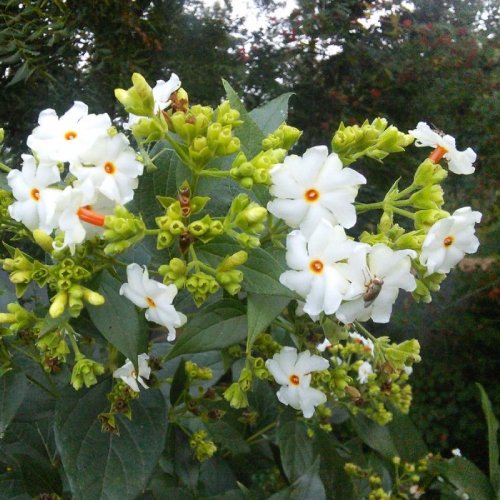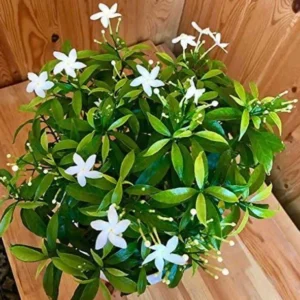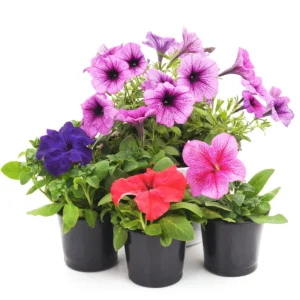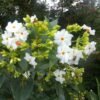Night flowering jasmine
| Scientific name | Nyctanthes arbor-tristis |
| Common name |
Night flowering jasmine |
| Temperature requirement | 25-35 °C |
| Humidity | 40-50% |
| Light | Full sun or part shade |
| Watering | Water everyday and keep moist |
| Pests | Spider mites, caterpillars and aphids |
| Pet friendliness | Not hazardous |
| Maximum plant height | Up to 10 m |
| Potting mix | Potting soil / Red soil / Manure / Perlite |
| Pot requirement | Good drainage and repot every 1-2 years |
| Nutrition | Apply manure once in fortnight and NPK in next fortnight |
| Pruning & training | Remove dead and diseased leaves with sterile shears |
| Common color & season | White |
| Description | Nyctanthes arbor-tristis, also known as the night-flowering jasmine or parijat (parvati chi phula), is a species of nyctanthes native to south Asia and southeast Asia. Night flowering jasmine is a shrub or a small tree growing to 10 m (33 ft) tall, with flaky grey bark. The leaves are opposite, simple, 6–12 cm (2.4–4.7 In) long and 2–6.5 Cm (0.79–2.56 In) broad, with an entire marginit bears tubular, white, and fragrant flowers with orange stalks. As the name suggests, these intensely scented blooms unfurl during the night time and fall apart in the morning.This shrub does well in full sun to part shade. For abundant blooms, the more sunlight the plant is going to get, the better it will be. Avoid planting it at a shaded location.Night flowering jasmine likes consistently moist but not saturated soil. Water it deeply and thoroughly whenever top soil feels dry to touch. Do not let the soil go out dry completely at any point in time. This plant does well in loose and well-draining soil with a ph of 5.6-6. Although, it will be more than happy to grow in regular garden soil too. You can also use a commercial potting mix used for houseplants.Night flowering jasmine plant does well in loose and well-draining soil with a ph of 5.6-6. Although, it will be more than happy to grow in regular garden soil too. You can also use a commercial potting mix used for houseplants.This shrub is susceptible to spider mites, caterpillars, and aphids. Deter them away using neem oil or soap solution. |























Reviews
There are no reviews yet.